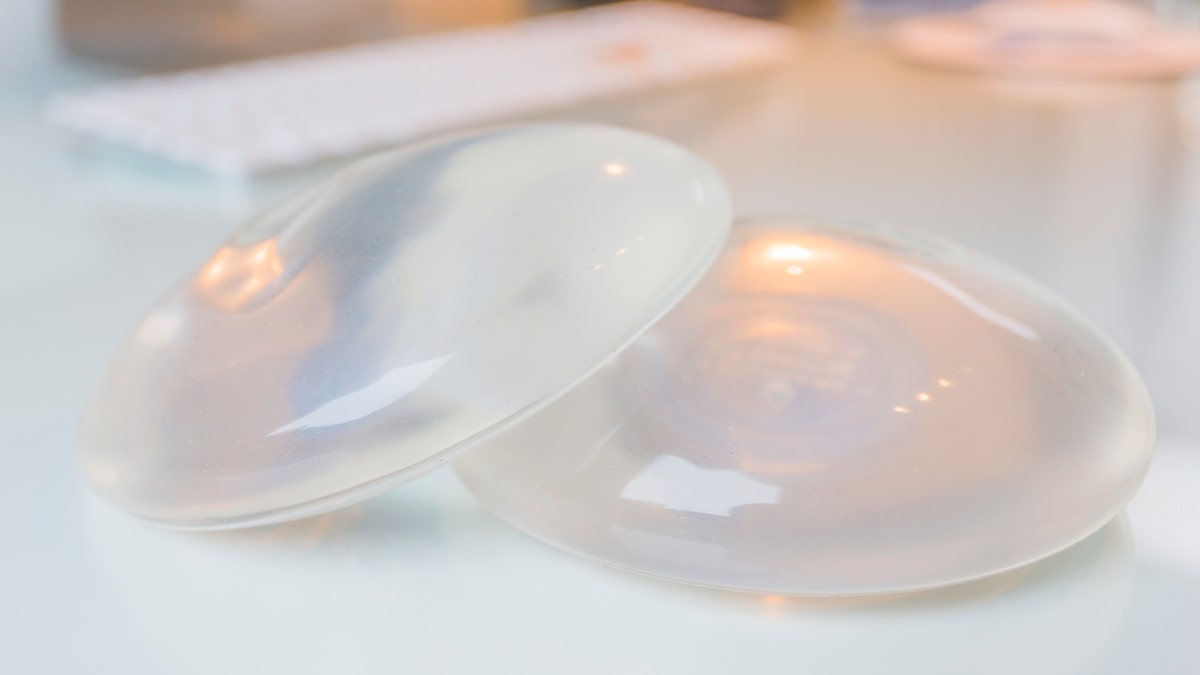
Two silicone breast implant in doctor office ( iStock)
Cases of a rare type of cancer that is linked to breast implants appear to be on the rise, according to a new review.
The cancer, called "breast implant-associated anaplastic large cell lymphoma," or BIA-ALCL, is not a form of breast cancer, but rather a lymphoma, which is a cancer of the immune system.
Estimates of how many women are affected range from 1 in 4,000 women with breast implants to 1 in 30,000 women with breast implants, according to the review, published today (Oct. 18) in the journal JAMA Surgery. However, the authors said that some data suggest the former estimate is more likely.
"We're seeing that this cancer is likely very underreported, and as more information on this type of cancer comes to light, the number of cases is likely to increase in the coming years," senior study author Dr. Dino Ravnic, an assistant professor of surgery at the Pennsylvania State University College of Medicine, said in a statement.
In March, the Food and Drug Administration (FDA) announced that the agency would recognize the link between breast implants and anaplastic large cell lymphoma. From June 2010 to February 2017, the agency received more than 350 reports of the cancer linked to breast implants; those cases included nine deaths.
In almost all of the known cases of BIA-ALCL, the women had "textured" breast implants, according to the review. Textured implants, or implants with a textured as opposed to smooth surface, are used in more "anatomically" shaped implants and are teardrop-shaped.
These implants were introduced in the late 1980s and gained popularity in the 1990s; the first documented case of BIA-ALCL was in 1997, according to the review. The researchers found no cases of BIA-ALCL prior to the introduction of textured implants.
In addition, "all manufacturers of textured implants have had cases linked to this type of [cancer], and we haven't seen cases linked to smooth implants," Ravnic said. Taken all together, this suggests a possible causal relationship between the textured implants and the cancer — in other words, the implants cause the cancer — though more research is needed to confirm this, Ravnic added.
It is possible that BIA-ALCL is caused by inflammation in the breast that surrounds the implant, and when breast tissue grows into the tiny holes in the surface of the textured implant, the inflammation is prolonged, the review said. Chronic inflammation is known to cause lymphoma, the researchers said.
In the new review, the researchers looked at 115 scientific articles from August 1997 through January 2017 that focused on BIA-ALCL. The researchers identified 93 cases of the cancer in the medical literature, plus two additional cases from the Hershey Medical Center in Pennsylvania.
On average, women were diagnosed with BIA-ALCL about 10 years after getting the implants. The average age of diagnosis was 51; for patients who got the implants for cosmetic reasons, the average age was younger, 46 years old; and for patients who got the implants for breast-reconstruction purposes, the average age was older, 57 years old. (Though implants are commonly thought of as cosmetic surgery, many patients require implants for breast reconstruction after a mastectomy, which is a surgery to treat or prevent breast cancer.)
The rates of women getting breast implants are increasing each year, according to the review. Because of this, the researchers said they expect to see a rise in the number of BIA-ALCL cases diagnosed.
The risk of BIA-ALCL from implants is small, according to the FDA. Still, it's important for doctors to recognize the possible risks and be aware of any symptoms in order to spot the cancer, the review said.
Originally published on Live Science.




















